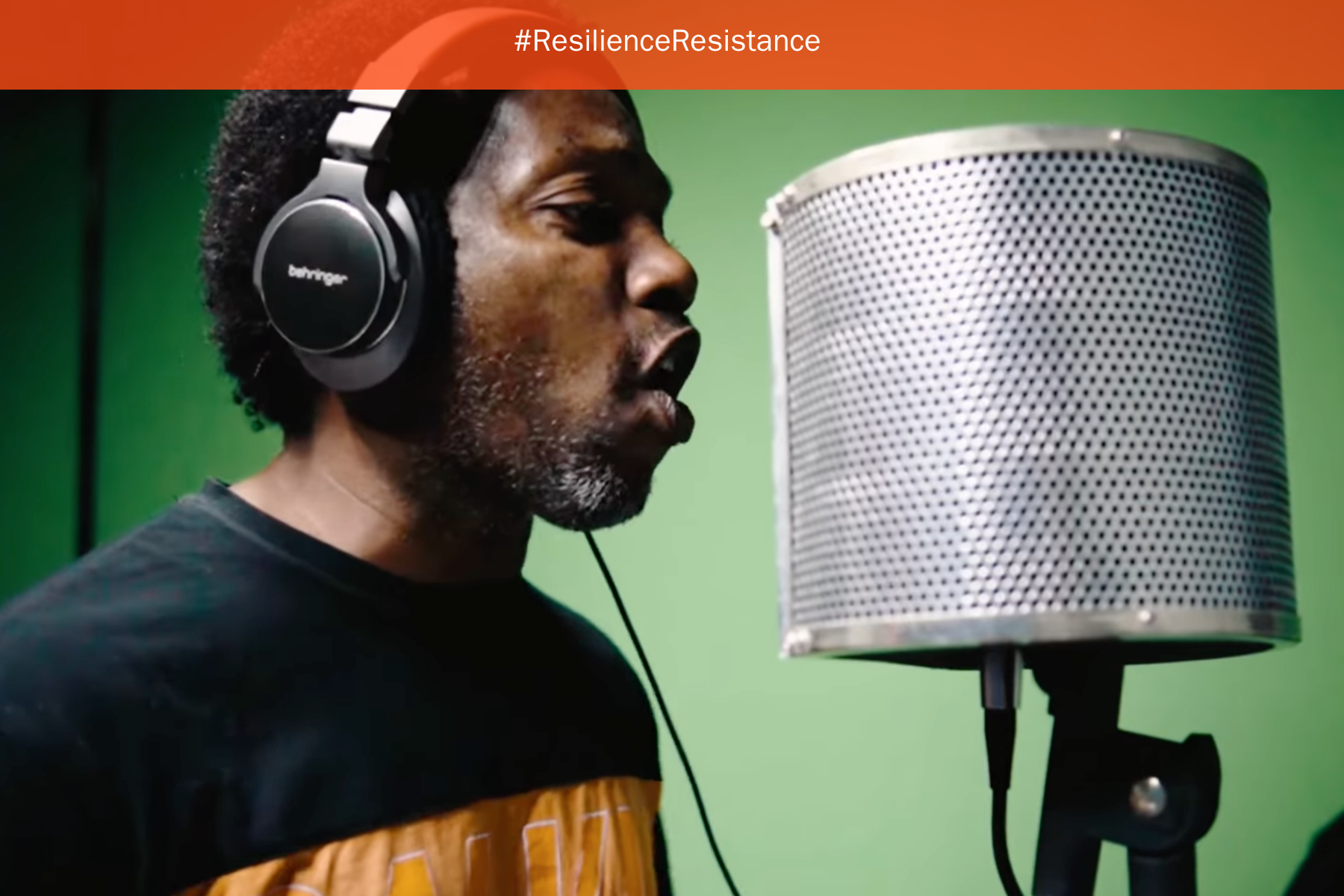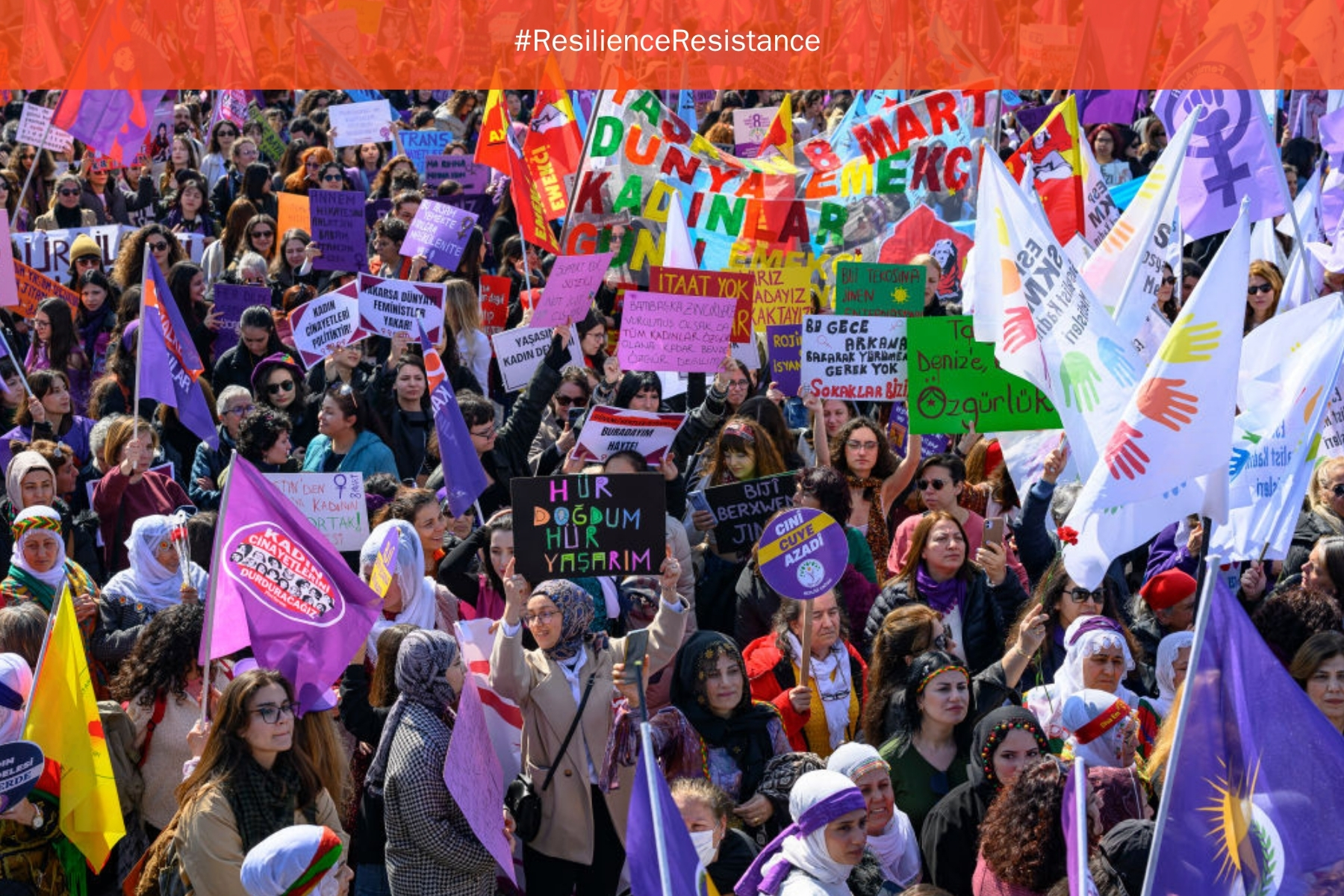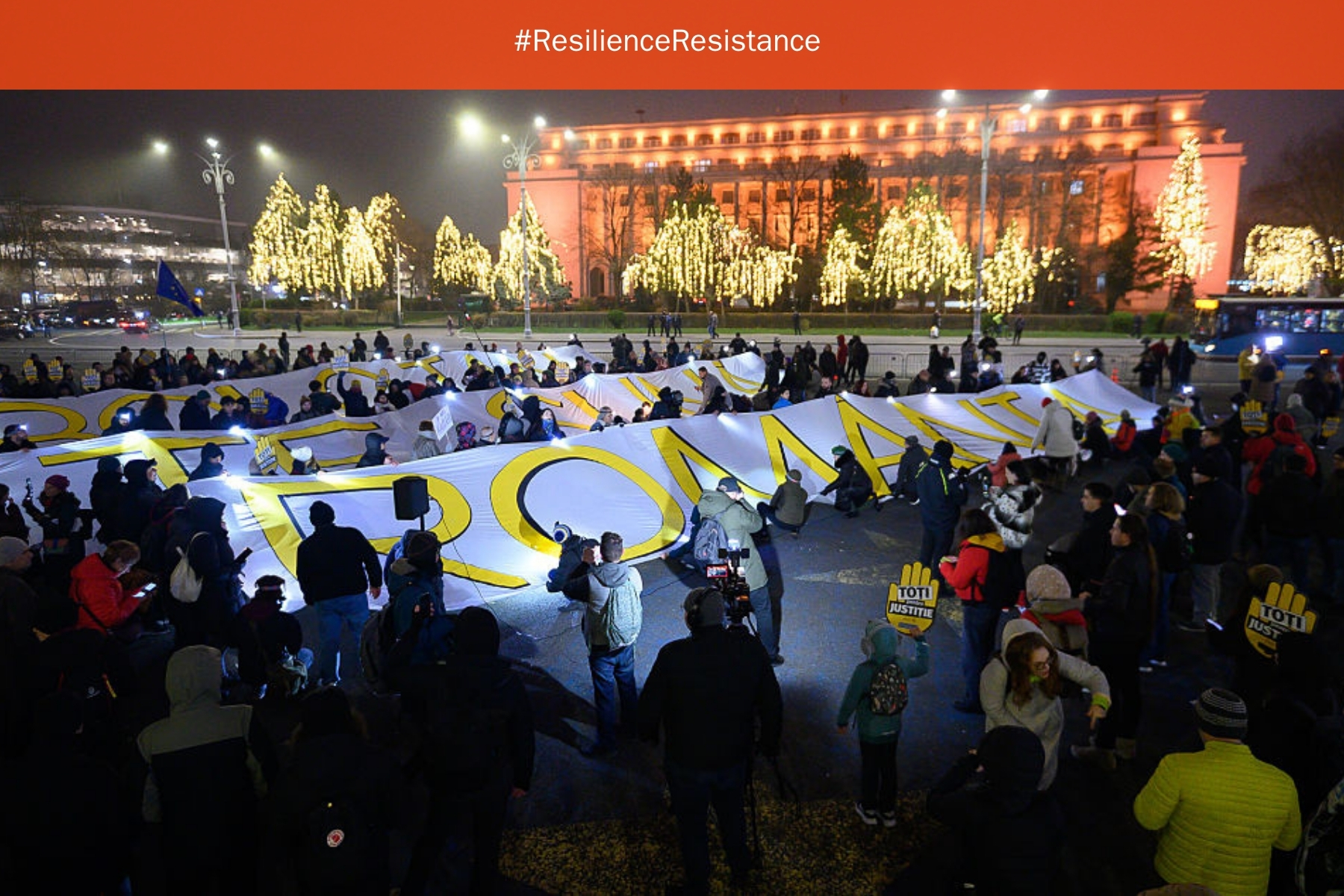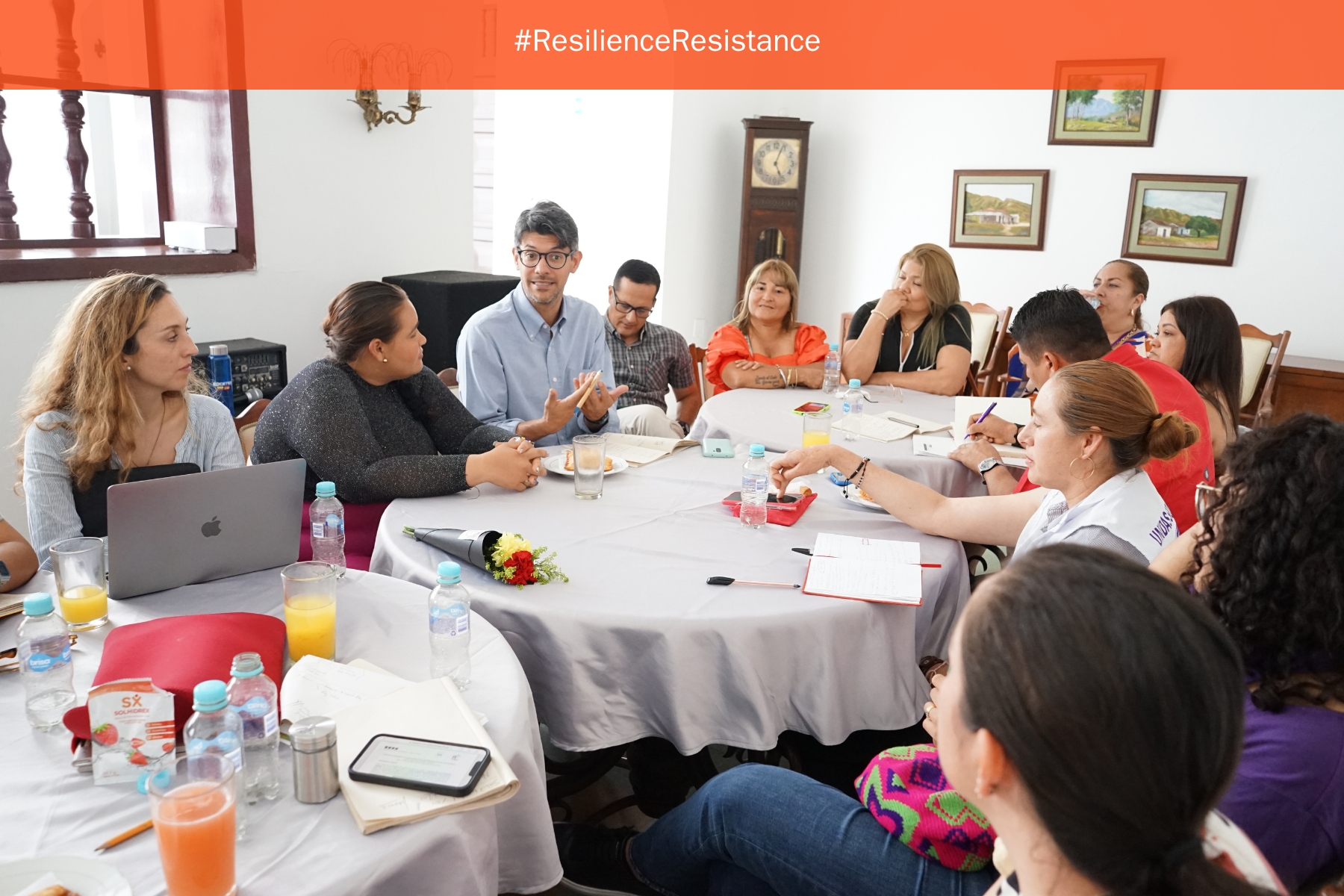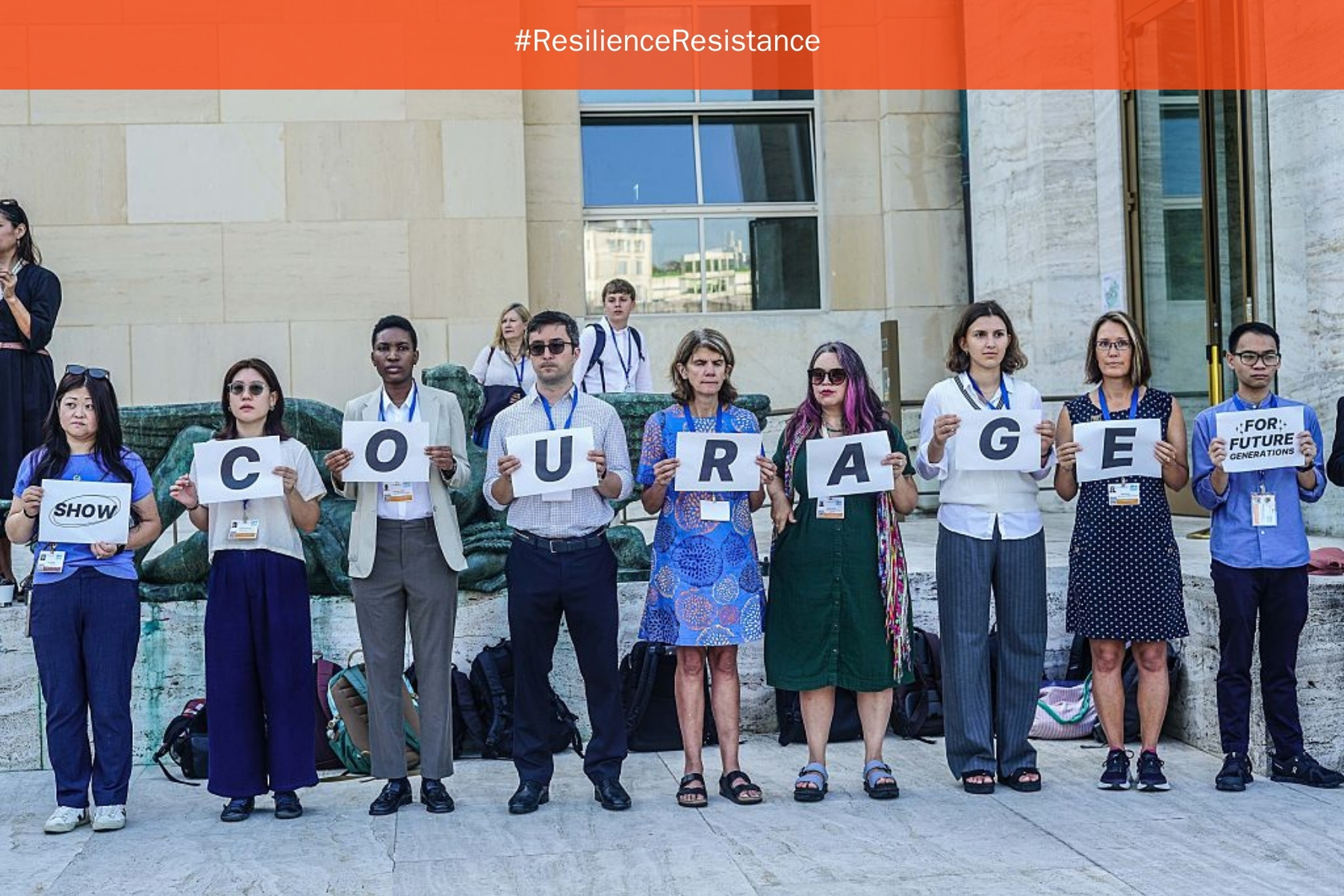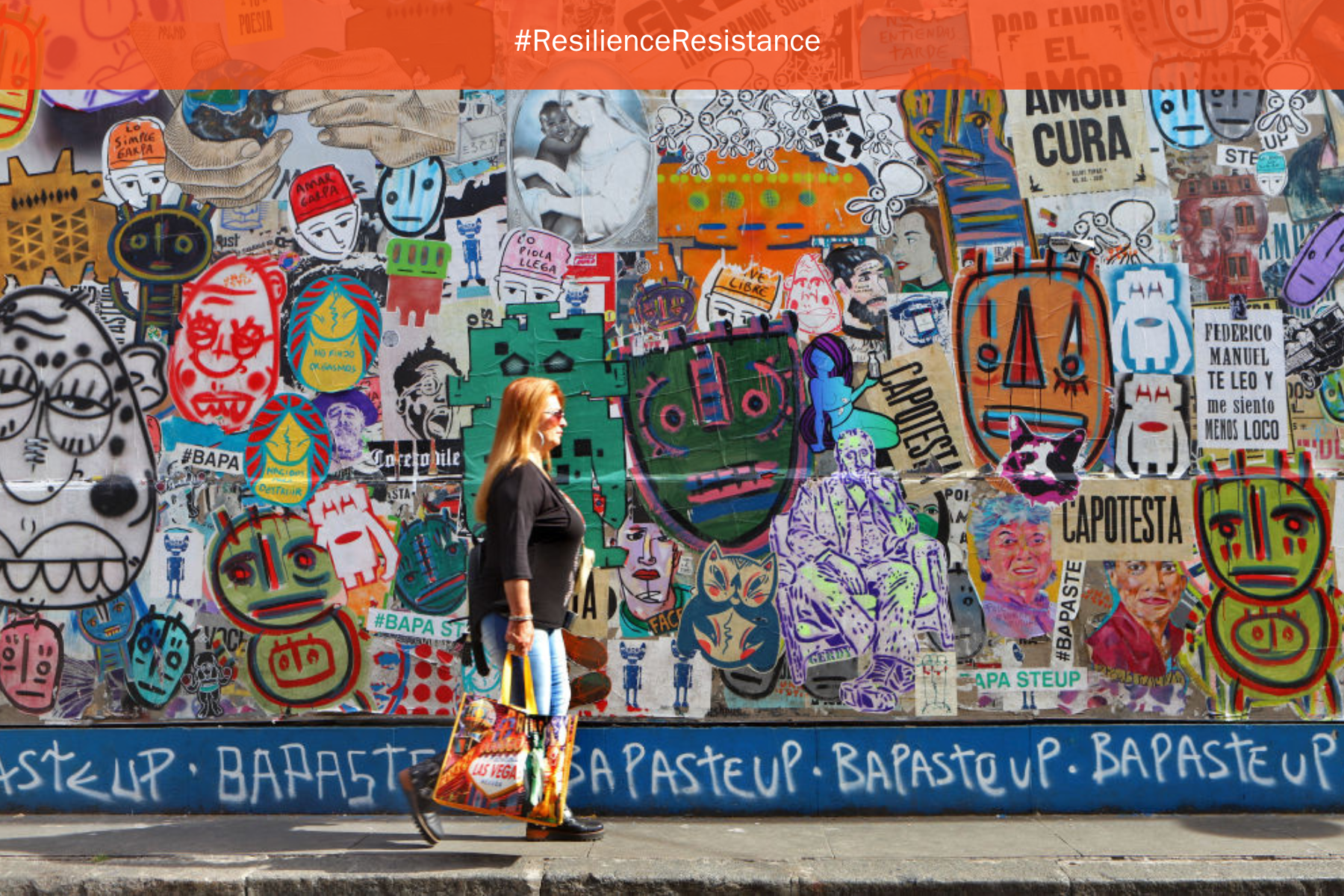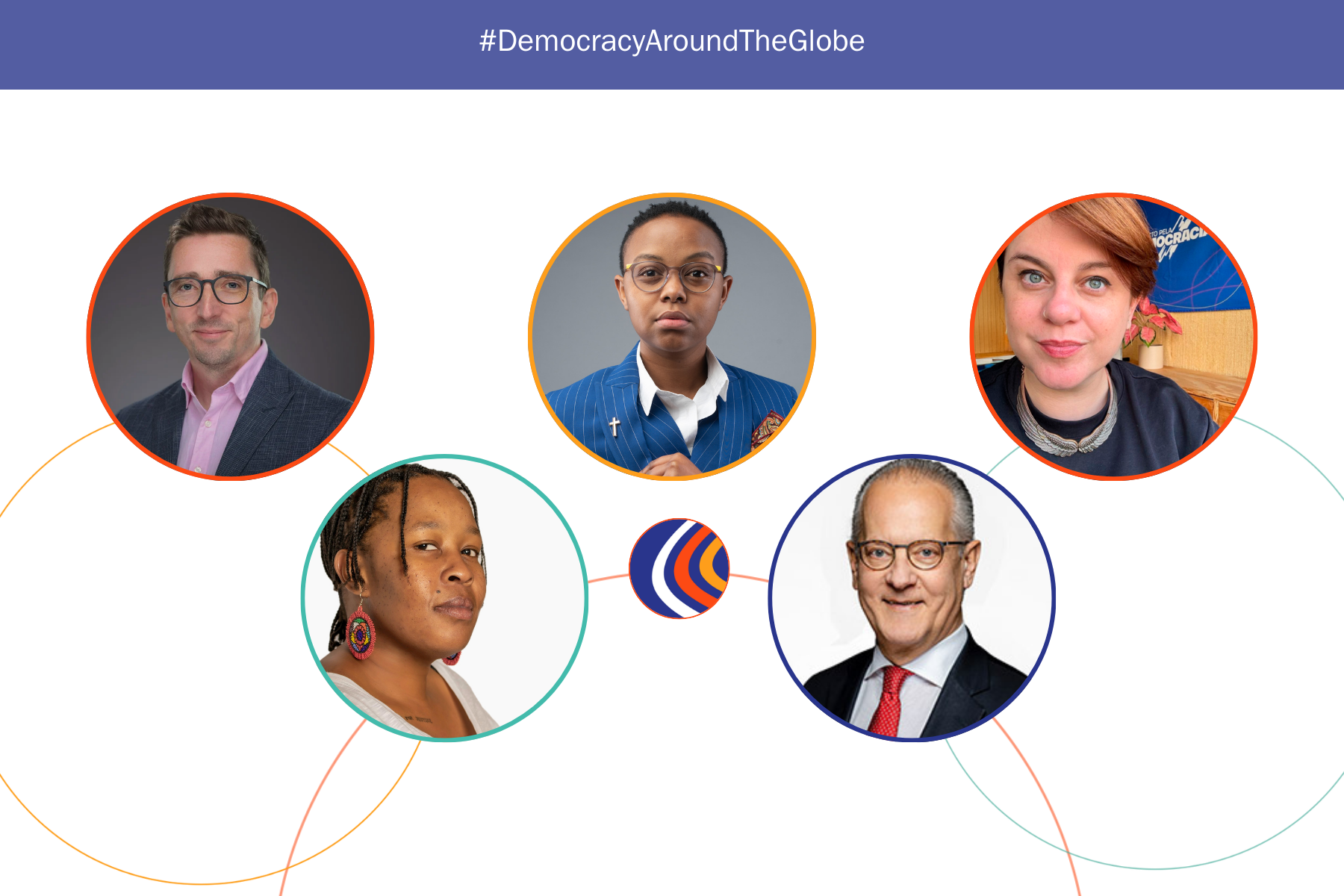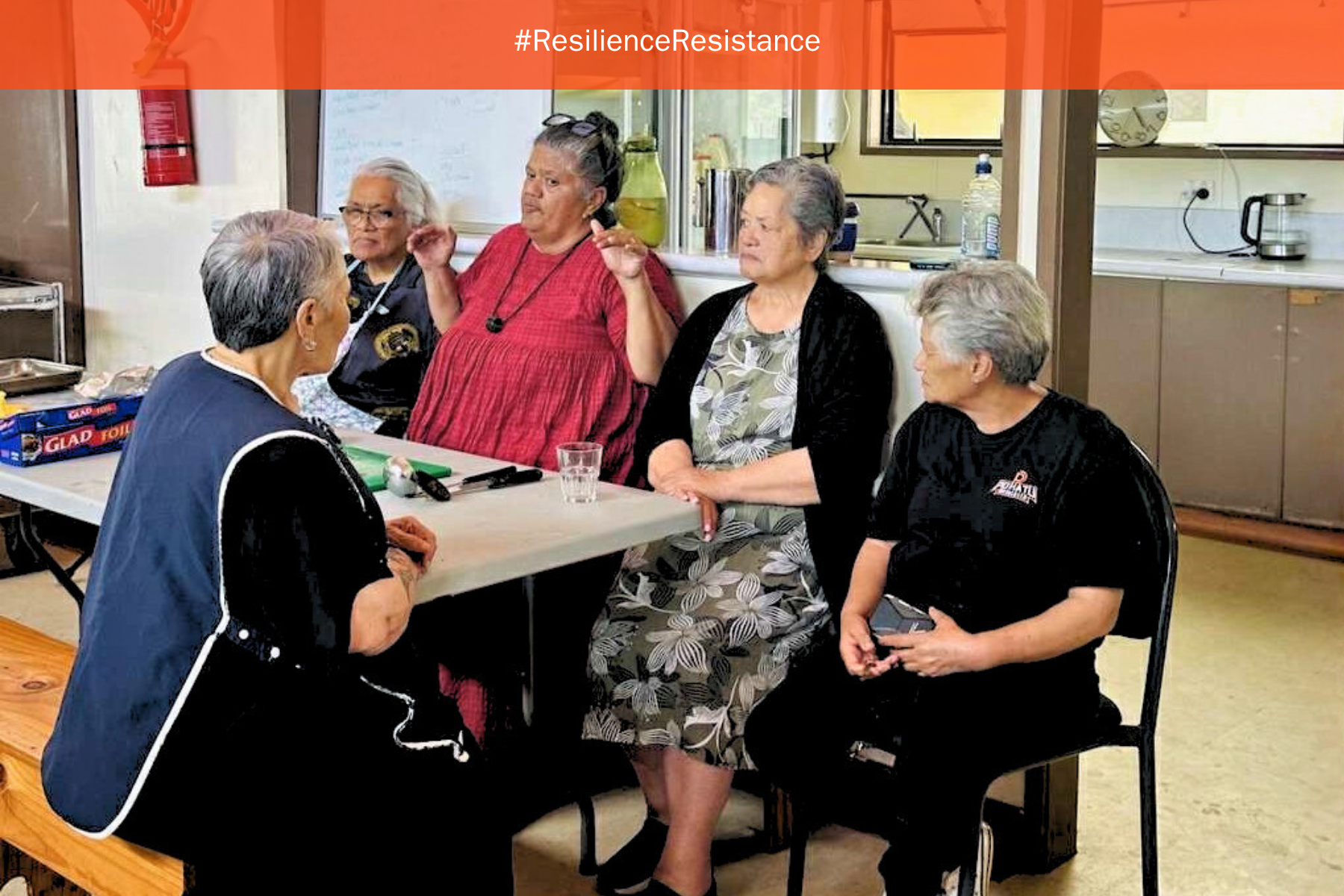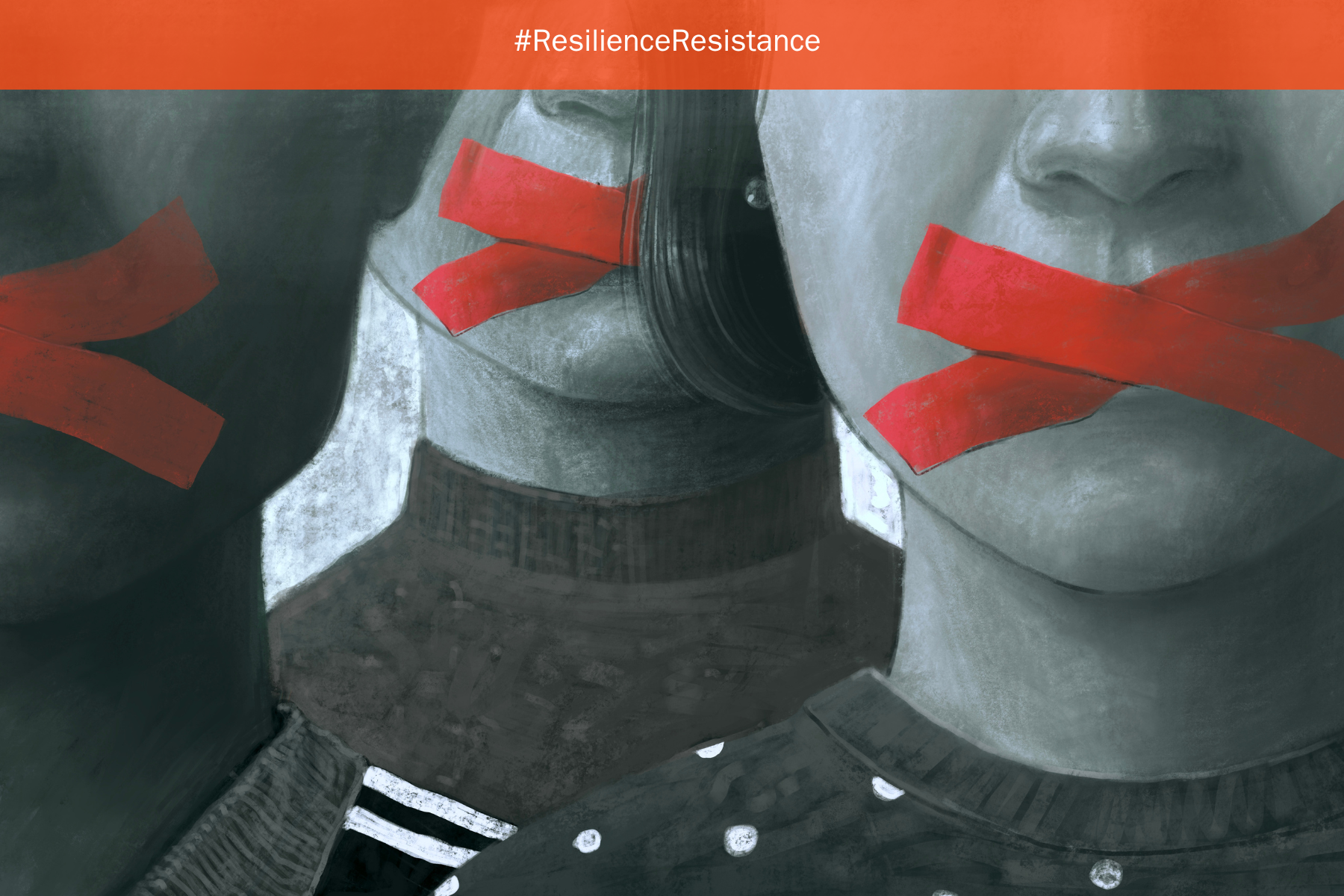Beyond the Binary: Feminist Frameworks for Transformative Peacebuilding
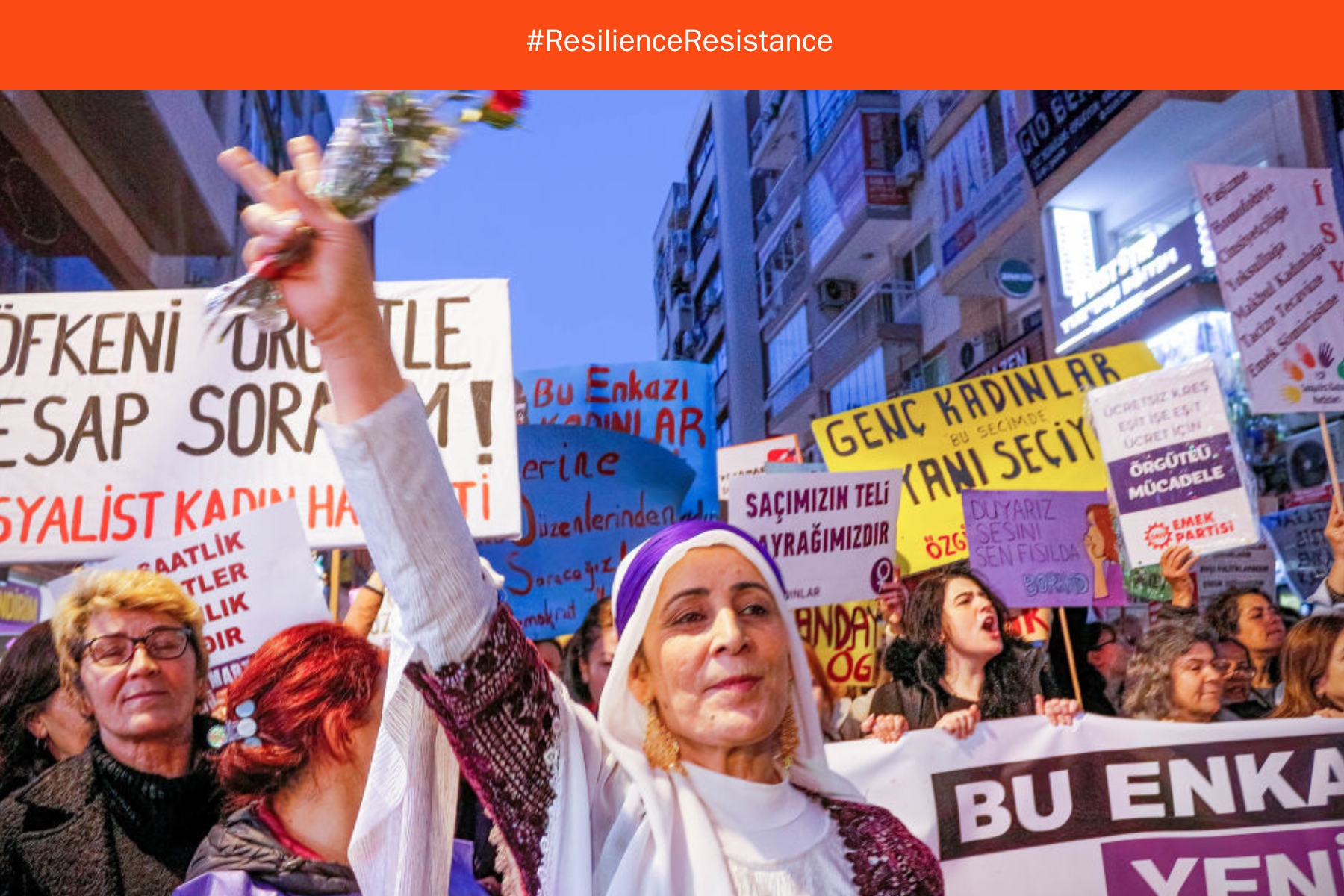
“To want and to dare! Never hesitate to act when the feeling of injustice revolts us. To give one’s measure with all good faith, the rest will follow as a logical consequence.” Doria Shafik
This call from one of Egypt’s pioneering feminists is not a relic of the past. It is an urgent reminder for our region today: justice and peace cannot be achieved if women’s lives remain confined to false separations between “public” and “private” or if the pain endured in our bodies and homes is dismissed as apolitical.
For feminists in the Middle East and North Africa (MENA) region, the path toward peace requires dismantling these binaries, holding all forms of power accountable, and prioritizing collective healing as both a strategic political move and a fundamental human necessity.
For decades, the separation of public matters—such as politics, law, and the economy—and private matters—such as family and intimacy—has been used to silence women. Authoritarian states have relied on this divide to exclude women from decision-making and to excuse violence inside the home as “cultural” or “personal.”
Yet, as Egyptian feminists have shown since the 2011 revolution, the violation of women’s bodies in public squares is inseparable from the denial of their rights in family law. Domestic violence reproduces silence in the street, and violence in the street reinforces control inside the home.
To expose this continuum is to reclaim women’s agency; there is no private life free of politics. Politics are inscribed in our private lives. One of the strongest examples of this is when mothers transformed private grief into public resistance against authoritarianism in the Madres de Plaza de Mayo in Argentina.
The Value of Women’s Narratives
When survivors of violence in MENA went public, they made visible what was long denied: trauma is never only individual. Every testimony disrupted the narrative that framed violations as isolated incidents or private misfortunes. Instead, women insisted on seeing themselves as part of a political struggle and sought accountability.
Women’s movements prioritize dismantling the public/private binary by producing narratives, amending laws and policies, engaging men, creating holistic approaches to political participation, and, above all, ensuring that women’s perspectives shape peace and reconciliation processes. The Women of Liberia Mass Action for Peace, whose mobilization forced an end to war and shifted political negotiations, is an example of nonviolent action that promoted both peace and women’s rights.
Survivors who share their experiences do not just recount pain. They generate knowledge, demand justice, and build communities of resilience. Storytelling, art, and grassroots testimony become tools of political imagination and allow us to envision peace not as the silence of women but as their voices filling the public sphere.
A New Path toward Peace
Peace cannot only be built in ministries, parliaments, or UN negotiations. Accountability must travel beyond institutions and into families, communities, and movements. A striking example comes from Colombia, where women successfully prioritized a gender subcommission in the 2016 peace accord, ensuring that women’s rights and survivor testimonies were at the heart of the agreement.
Peace is not sustainable if trauma festers. For women in Egypt, Sudan, Syria, Yemen, and beyond, wars and repression have left deep scars that no political agreement can erase without allowing for a process of healing. Feminists in our region have long argued that healing is a form of political action as it restores dignity, breaks cycles of silence, and fosters solidarity across generations.
Collective healing practices, such as storytelling circles, narrative exposure therapy, and community rituals, enable survivors to transform pain into a source of strength and power. Linking the intimate to the political, these practices enable women to re-enter public life not as victims but as leaders shaping their futures.
Women’s narratives are not only alternatives to written history, but also the foundation for building sustainable and inclusive peace. Prioritizing peace processes with women’s narratives and collective healing is essential to transcending the distinction between public and private spheres. It means putting lived realities and survivor-centered approaches at the core. Above all, it shifts power away from violent actors and toward those who carry the consequences of war and have the tools to rebuild communities and institutions.
The MENA region has seen multiple failed peace and reconciliation efforts. It may be time to try an approach that prioritizes gender accountability and collective healing.
In times of deep fragmentation, MENA feminists remind us that peace is not the absence of conflict but the presence of justice, accountability, and healing. To reclaim both the personal and the political is to refuse the silencing of women’s lives. To prioritize accountability across private and public spaces is to redefine democracy itself. And to prioritize collective healing is to envision peace not only as treaties signed by states but also as futures built by communities who insist on rebuilding.
As Doria Shafik urged us: want and dare.
Mozn Hassan is an Egyptian feminist, community psychologist, and human rights law practitioner.
Resilience & Resistance is a Charles F. Kettering Foundation blog series that features the insights of thought leaders and practitioners who are working to expand and support inclusive democracies around the globe. Direct any queries to globalteam@kettering.org.
The views and opinions expressed by contributors to our digital communications are made independent of their affiliation with the Charles F. Kettering Foundation and without the foundation’s warranty of accuracy, authenticity, or completeness. Such statements do not reflect the views and opinions of the foundation which hereby disclaims liability to any party for direct, indirect, implied, punitive, special, incidental, or other consequential damages that may arise in connection with statements made by a contributor during their association with the foundation or independently.
